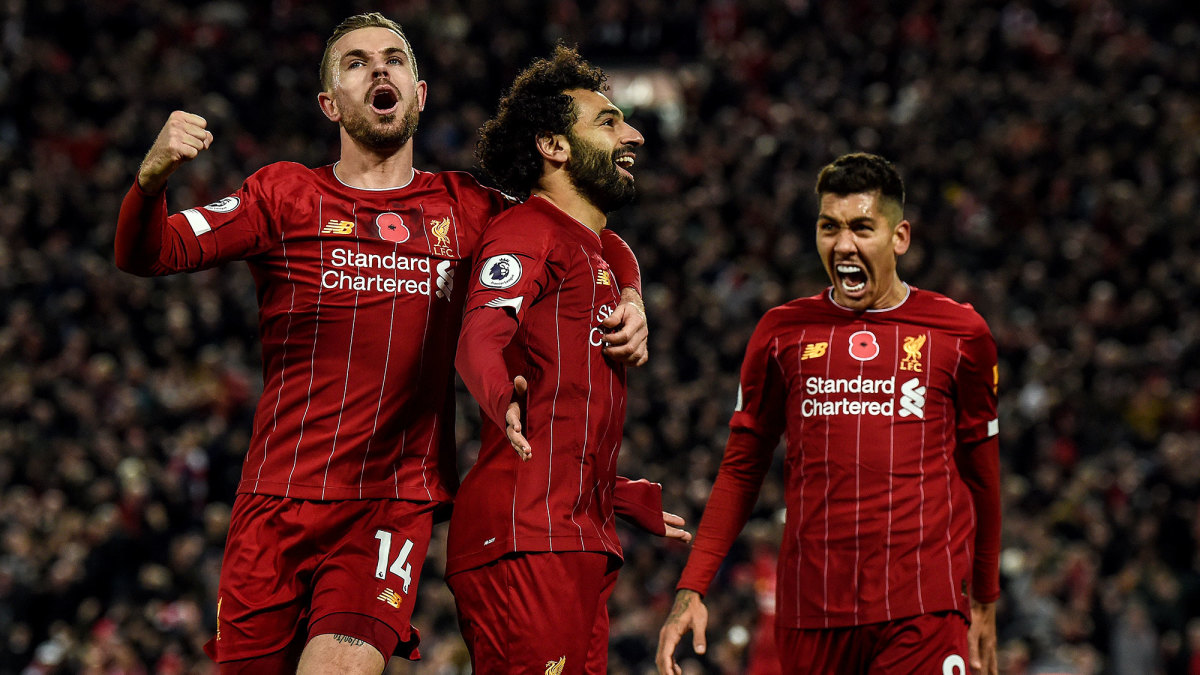The Premier League Has a Firm Plan to Return
Premier League football will return on June 17, so long as all safety requirements are in place, the clubs decided at a meeting on Thursday. That a resumption was imminent and had been expected after Wednesday’s vote to allow full-contact training, but the later meeting confirmed plans. All 92 remaining games will be broadcast in some form, including at least 29 on BBC and Sky, shown free-to-air. That marks the first time Premier League games will have ever been broadcast live on free-to-air television in the UK. (NBC Sports remains the viewers' choice in the USA). As expected, all fixtures to close this season will be behind closed doors.
The Premier League does still need government go-ahead before it can restart, and Culture Secretary Oliver Dowden warned that “green light” was not guaranteed. As the lockdown is gradually lifted, though, it seems all but certain that will be granted.
Positive to see further steps on the return of football today
— Oliver Dowden (@OliverDowden) May 28, 2020
I’ve been pushing for as many games as possible to be free to view & for the return of the top league to support the whole football family
We are still working on govt guidance before we green light sports’ return
The Premier League has acknowledged the possibility of a second lockdown and has stipulated that if the season cannot be finished, positions will be determined by unweighted points per game.
An initial proposal had been for the first games to be played on the weekend of June 20-21, but Manchester City will now play Arsenal and Aston Villa will play Sheffield United on June 17 so that every club will have played 29 games. A full slate will then be undertaken that weekend, with Tottenham possibly playing Manchester United on Friday, June 19–a match with significant implications in the race for Champions League places. Were Man City to lose to Arsenal, Liverpool could then seal the title by beating Everton in that first full round of games. The Merseyside derby is one of the games Sky will be showing free.

The weekly schedule will feature one game on Fridays, four on Saturdays, four on Sundays and one on Mondays, while there will also be two midweek rounds with games at two kickoff times on Tuesday, Wednesday and Thursday. The full schedule has yet to be released, but the season should be over by early August, which in turn means the 2020-21 season can begin in early September–perhaps even late August.
Given all of the obstacles that had been raised over the past three weeks of discussion, the decision seems to have been passed with remarkably little difficulty. The reasons for that appear twofold. Firstly, the return of the Bundesliga three weeks ago has offered a practical example of how the various regulations will work in practice. And, secondly, the Football Association’s clear statement that it would not permit relegation to be waived this season removed any incentive for the sides currently in the bottom three to try to curtail the season.
Some questions still remain about what have been termed “high-risk” games, where there is a perceived danger of fans congregating near the stadium, with a suggestion that they may still be staged at neutral venues. Police are concerned by Liverpool home games, at least until the title has been secured, and by other fixtures such as the North London derby between Arsenal and Tottenham. Discussions are ongoing.
Numerous players had expressed their reservations about a return, but after a concerted attempt by the authorities to explain how they will be protected, that opposition to a restart appears to be diminishing. Troy Deeney, the Watford captain whose young son has respiratory difficulties, had initially refused to train. Despite his teammate, Adrian Mariappa, subsequently testing positive, he has been persuaded to return following a meeting with England's deputy chief medical officer, Professor Jonathan Van-Tam.
"He's been doing very, very good research,” Deeney said, “And there is a lot of goodwill on his part to tell me, ultimately, that I'm going to be looked after as best as they can, and, ultimately, there is going to be some form of risk for all of us going back to work.”
There is a general acceptance that, given the level of testing, footballers will be among the most protected professions, and there is little doubt that the Bundesliga’s return to action has convinced many.
Not all, though. N’Golo Kante, who had been given “compassionate leave” not to train with Chelsea over his virus fears, has returned to the club's Cobham training ground, but as of yet is running alone.
The oddity is that after all the worries and the queries, by the time the decision to resume was take it had come to feel inevitable. In part, that is because the daily death toll, horrifying as it is, continues to fall. But mainly it’s because, for Premier League clubs, players and broadcasters–and indeed a government in desperate need of something to draw the attention away from its own problems–self-interest dictates that football should restart. It’s not ideal, but as the Bundesliga has shown, it’s a lot better than nothing.
